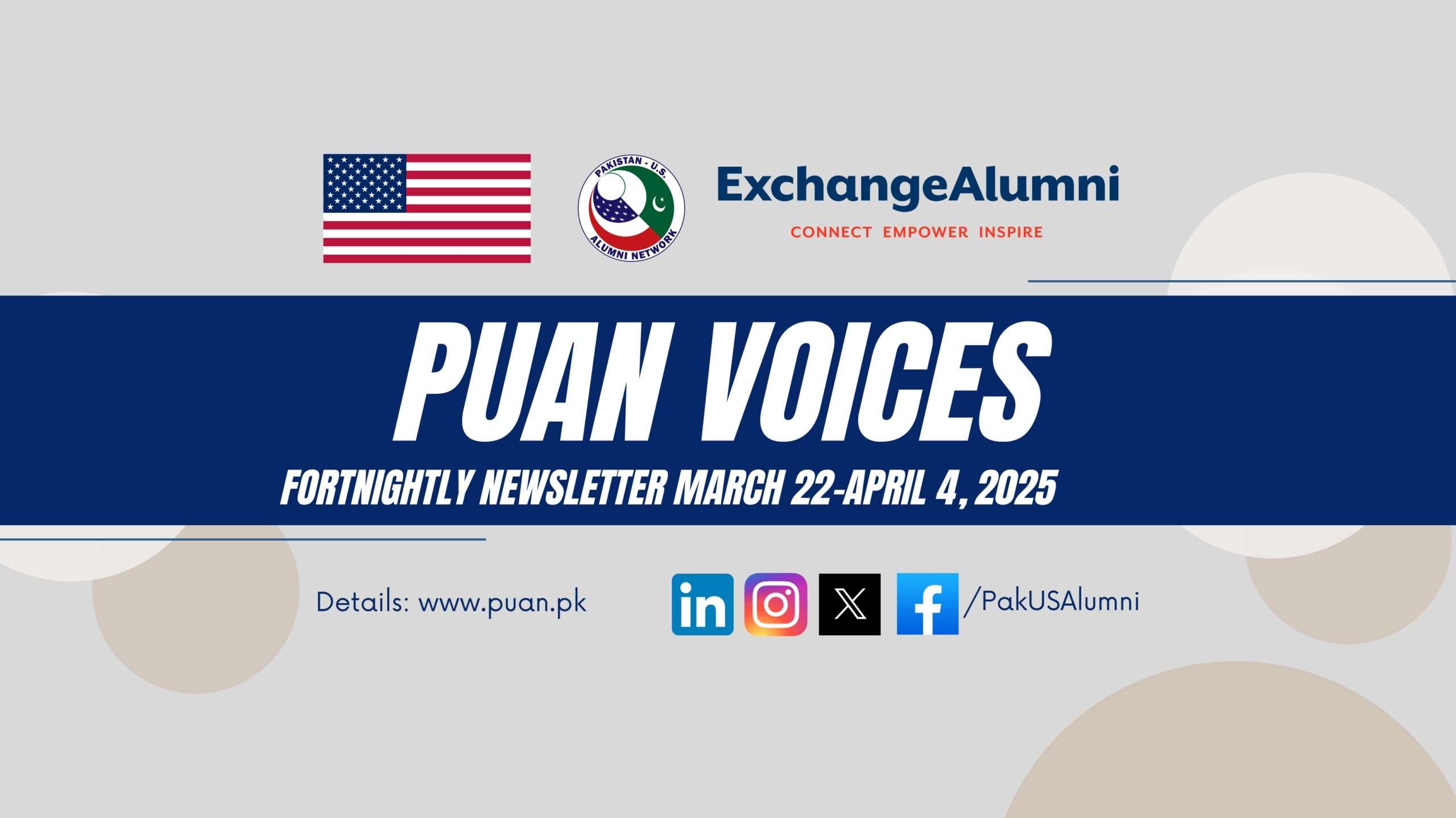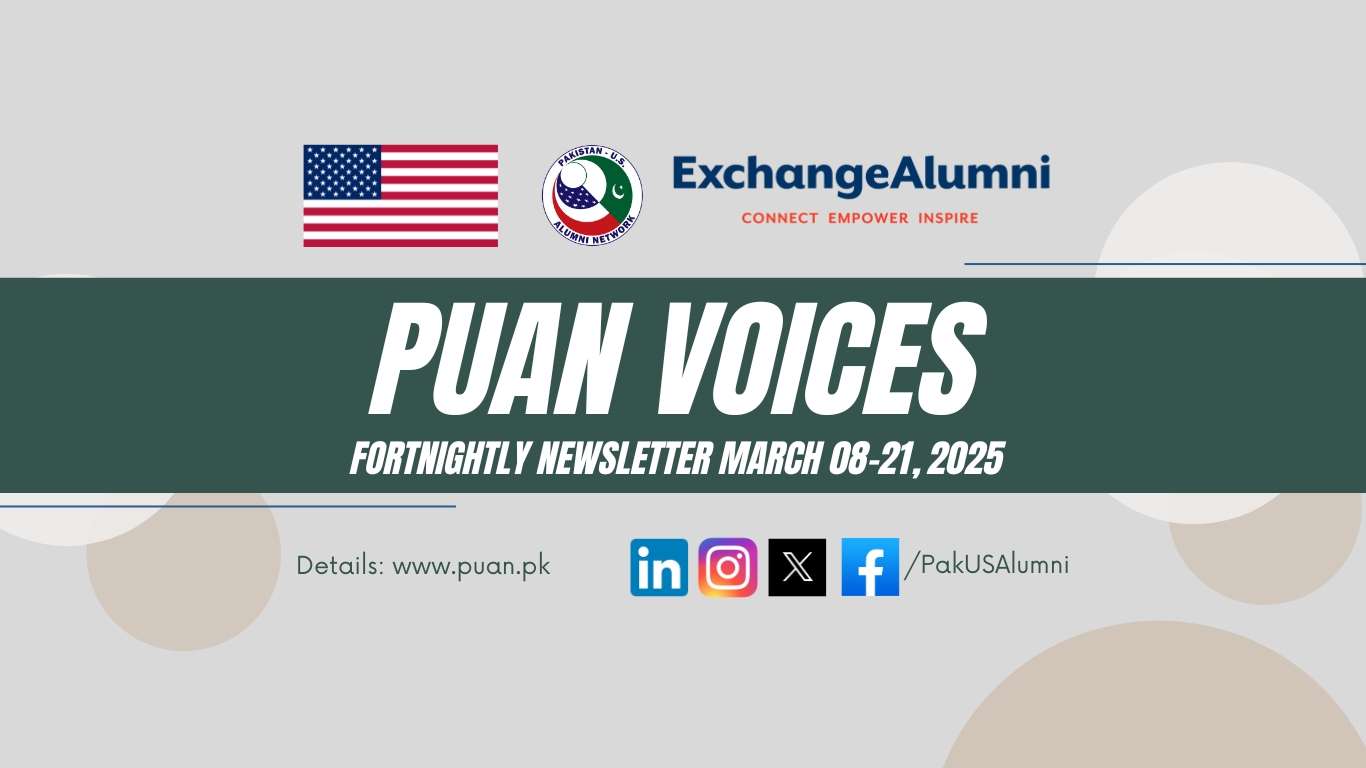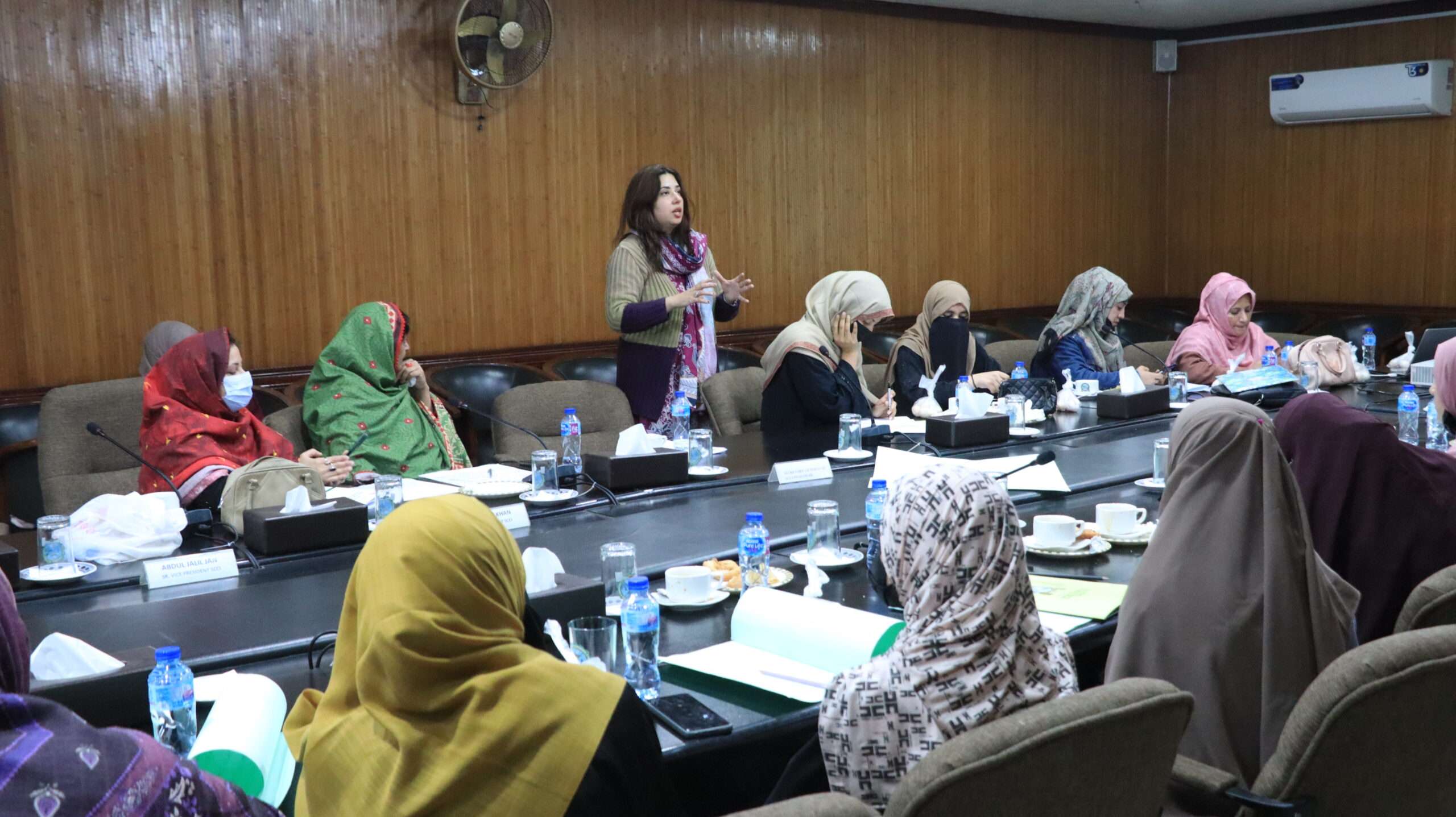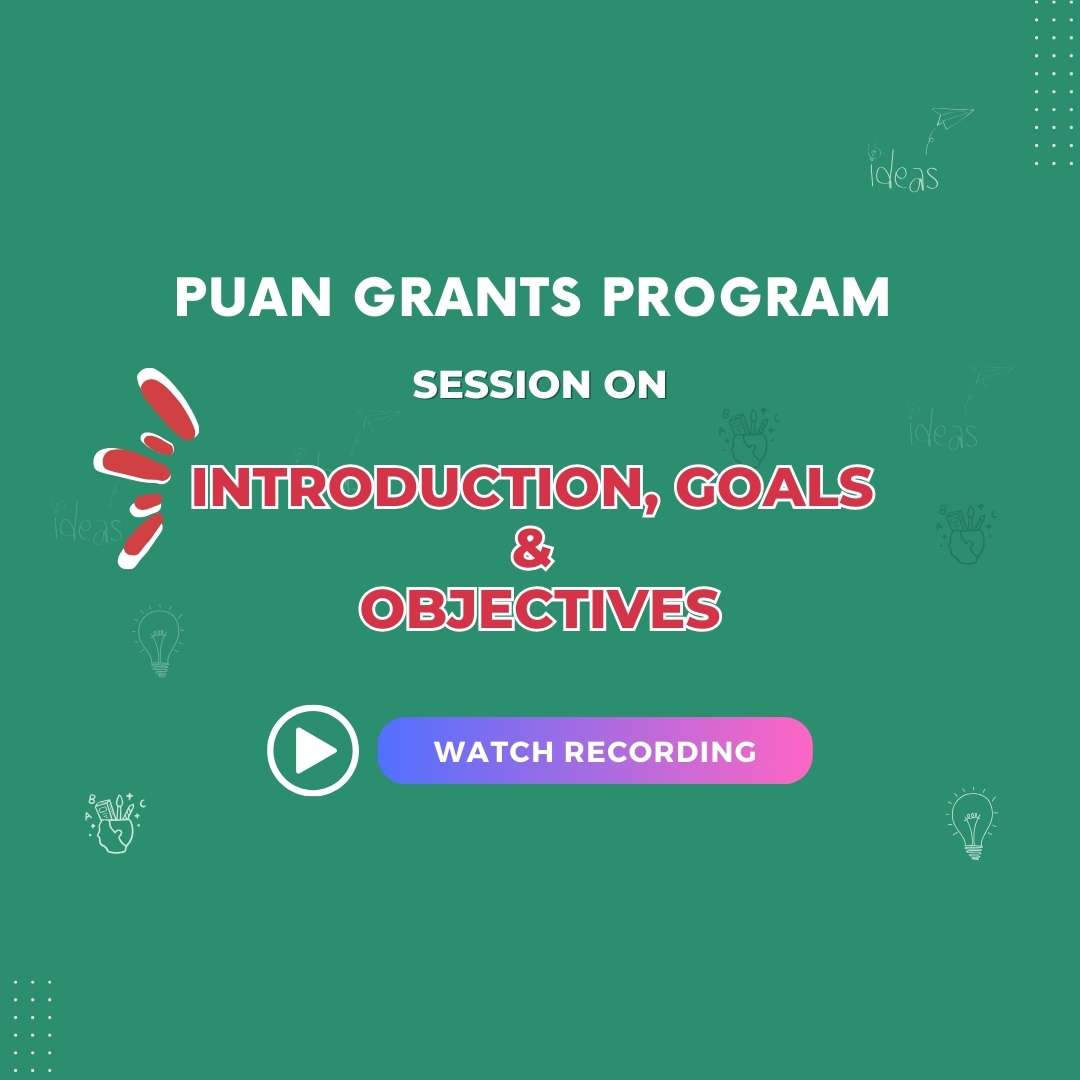The story of the world is half-told when it is told only by men.

Focusing on that motto, International Visitor Leadership Program (IVLP) alumna Mehwish Abbasi, who is a journalist herself, aimed at fostering the free expression of women’s voice, concerns, and aspirations. Journalists in Pakistan endure intimation, harassment, violence, and restriction on mobility. In an addition to this, a female journalist also endures societal pressure, and stereotypical attitude when she chooses to pursue a career in the media sector.
As a result, there is a great gender-gap in the media industry and a majority of women who aspire to be in the media sector, have been culturally forced to pursue alternate professions. All this influences public discourse, as female perspectives end up being underrepresented in media content, and a stereotyped image prevails.
Therefore, to bridge this gap, to empower women in the media and to celebrate their successes, Mehwish Abbasi, led the ‘Empower Women in Media and Journalism’ project which is supported by the U.S. Mission in Pakistan through PUAN Alumni Small Grant. The project incubated two components: a) two-day session of trainings and exposure visits, and b) a one-of-its-kind conference on ‘Empowering Women in Media and Journalism’.
Training Session and Exposure Visit:
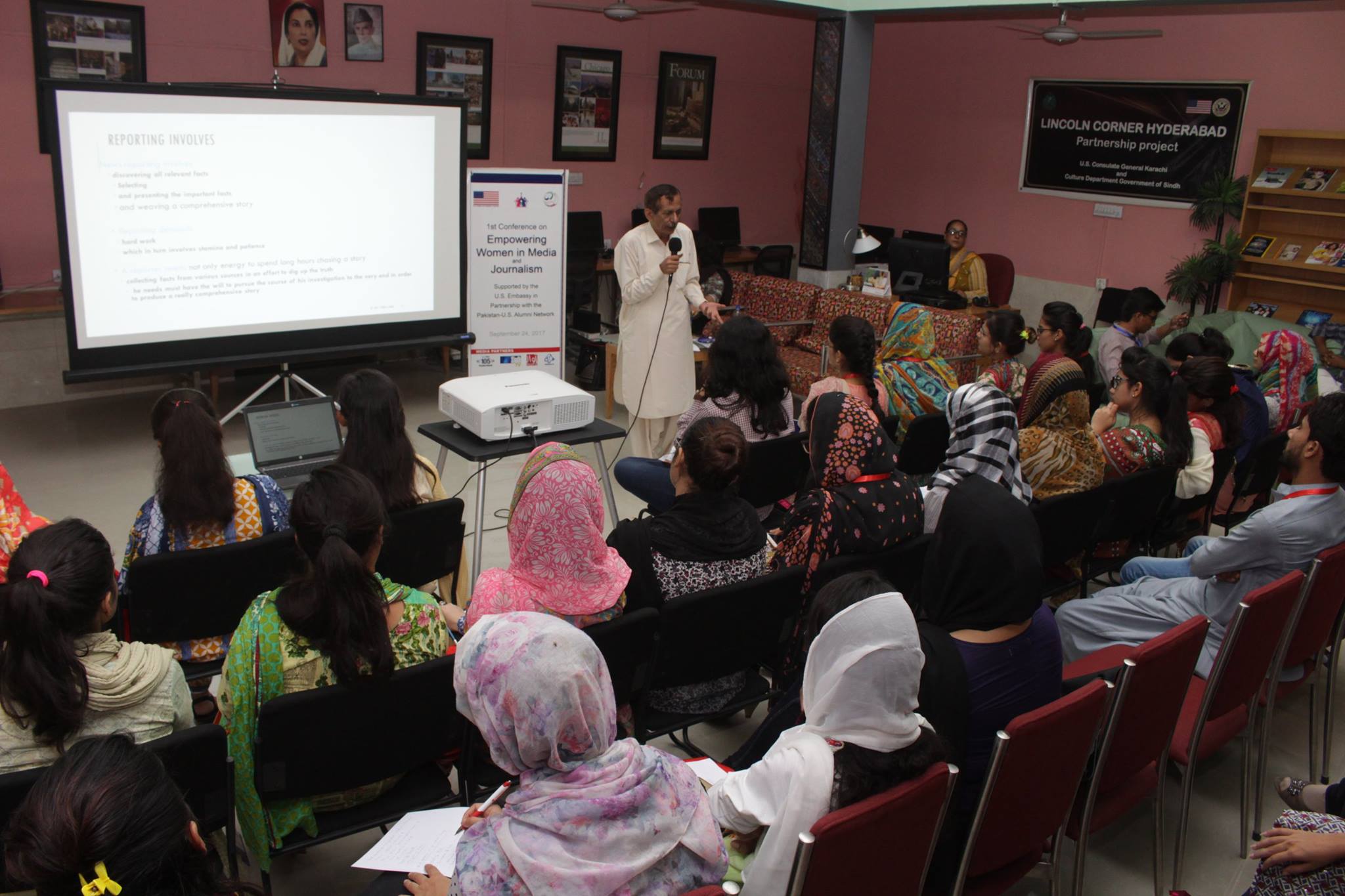
The two-day training session and exposure visit were designed with the aim of helping aspiring women journalists to improve the ability to report safely in an increasingly complex world; to introduce methods for self-defence; and to instil the narrative the mobility to work is and should be a woman’s personal choice.
The participants visited Ranikot and Lal Shahbaz Qalandar’s shrine as a part of the exposure visit to develop the skills needed to operate safely in challenging and unpredictable circumstances to visualize the situations journalists and media personnel encounter in real life.
Under the mentorship of seasoned mentors and trainers, the participants were introduced to several tools and mechanisms required for ethical reporting, and were given the instructions to develop a news brief. As a result, the participants produced short-documentaries that revolved around the training and their tour to the historically and spiritually significant sites.

As an enthusiastic participant shares her experience;
“Being from a small town of Sindh, the training workshop and practical engagement have broadened my knowledge about gender-sensitive reporting that portrays women’s issues and voices in an accurate manner rather than as a subordinate in society. I am determined to be the first female journalist in my family.”
Empowering Women in Media and Journalism Conference:
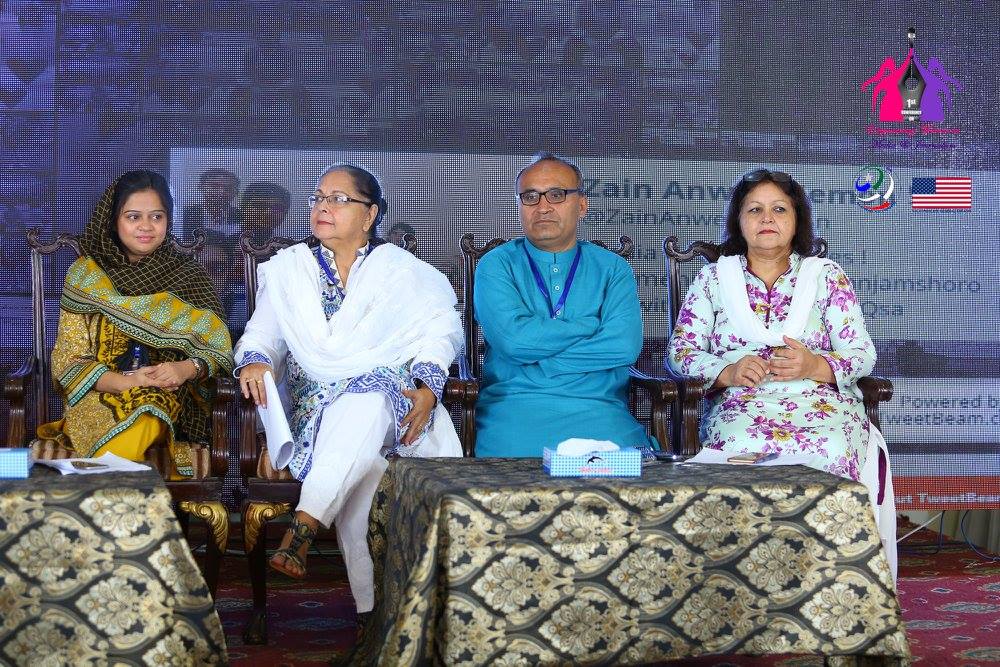
The Empowering Women in Media and Journalism Conference was held in Hyderabad to advocate for gender-disparity in the field of journalism, celebrate and learn from successful women in journalism, television and writing, through keynote speeches, and panel sessions.
The conference introduced more than 250 attendees to a wide range of opportunities to grow as media professionals, learn about women’s rights in the workplace, and empower women to actively participate and become the leaders in the media industry.
The short-films produced by the participants were screened at the conference to showcase their takeaways after attending extension two-day training on journalism and reporting.
Speaking at the event, Mehwish Abbasi highlighted the challenges, being faced by women in media and shared;
“After working in media for several years, I have observed that majority of female journalists are unaware of their rights. Therefore, they silently endure several issues. I too was affected due to lack of information. This motivated me to organize an event where I not only empower female journalists but also train them about gender-sensitive reporting, their rights and safety measures.”
The conference featured several panel discussions – among those the prominent ones were on Workplace Harassment: Perspective of Law; Empowering Women in Media; and Reporting by and on Women. The panellists informed the attendees about the legal procedures available in Pakistan to lodge a complaint against violence or harassment against women in the workplace by stating that the violator can be imprisoned for up to three years or fined PKR. 500,000 or both.
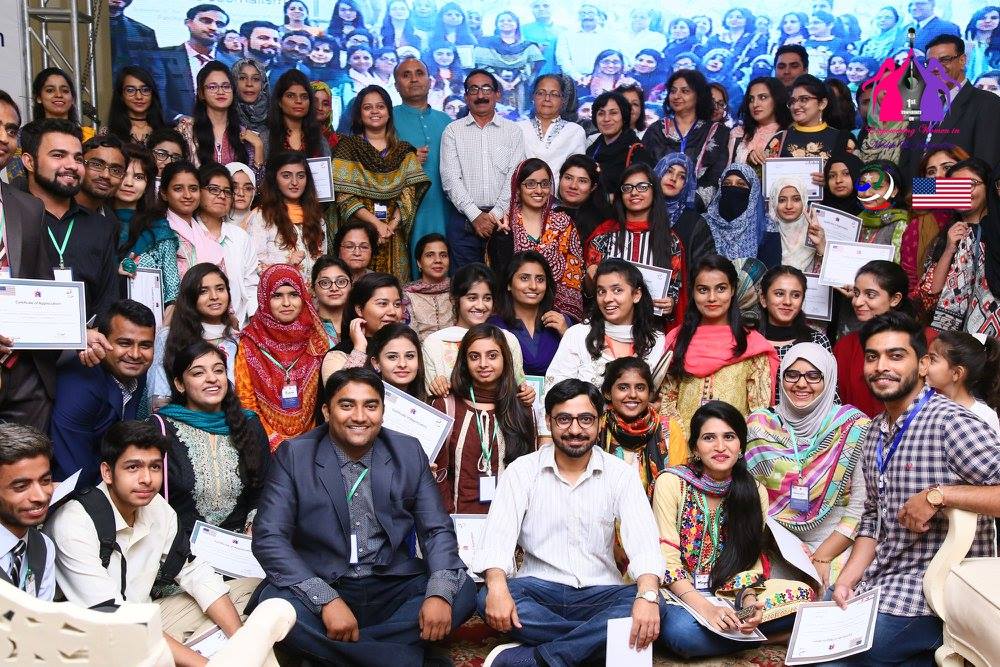
Ana Saqib (Social Activist and Lawyer) who was leading the panel discussion ‘Reporting by and on women’ emphasized, “Due to societal pursue and insecure work environment, women in media are often pressurized to question their profession. Such hindrances should be removed by creating a friendlier and flexible environment with the support of the government, local bodies, and the people.”
All in all, the entire experience was extremely beneficial for the participants in learning their role as media professionals who can redefine the industry, creating a more inclusive and safe environment for female journalists in Pakistan.
This event was made possible with the help of an alumni small grant from the Pakistan-U.S. Alumni Network (PUAN). All alumni of various U.S. government-sponsored exchange programs in Pakistan are eligible to apply for the grant of up to 10,000 USD to enable them to give back to their communities.


